Protests Scheduled To Take Place At Premiere of Controversial SMC Play
Cebelihle Hlatshwayo, Renée Bartlett-Webber, Samayia Kirby & Victor Chambers | Editors
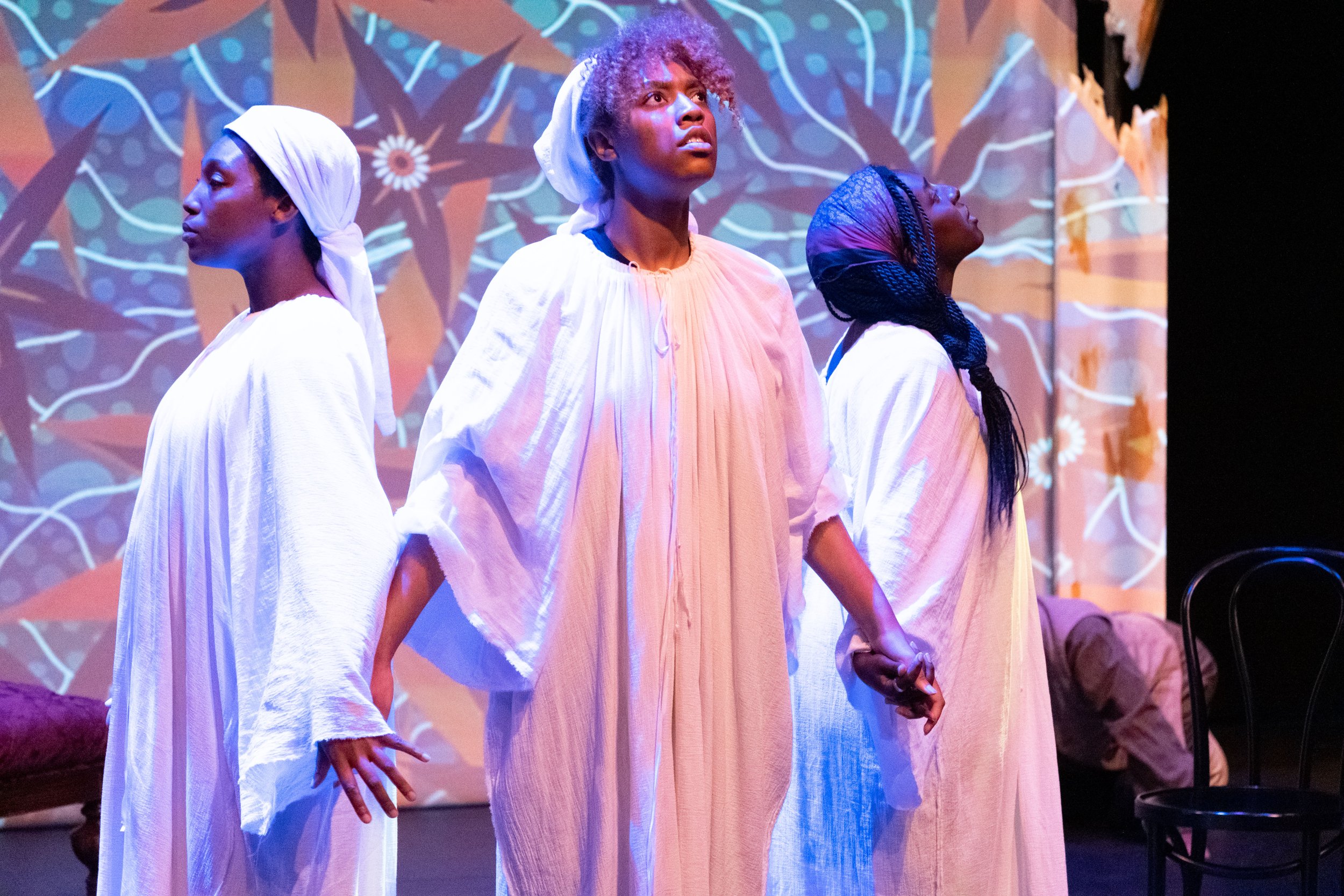
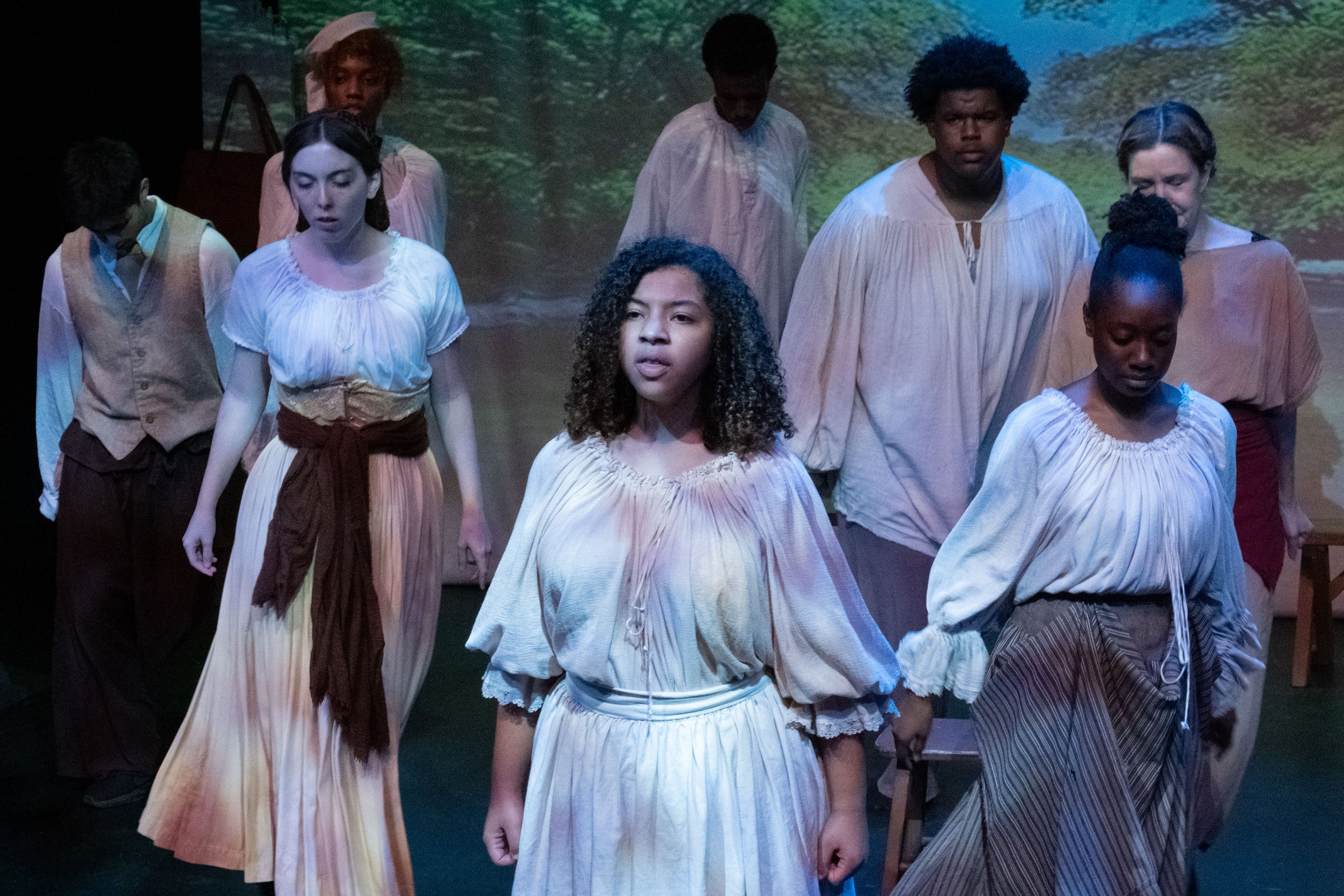
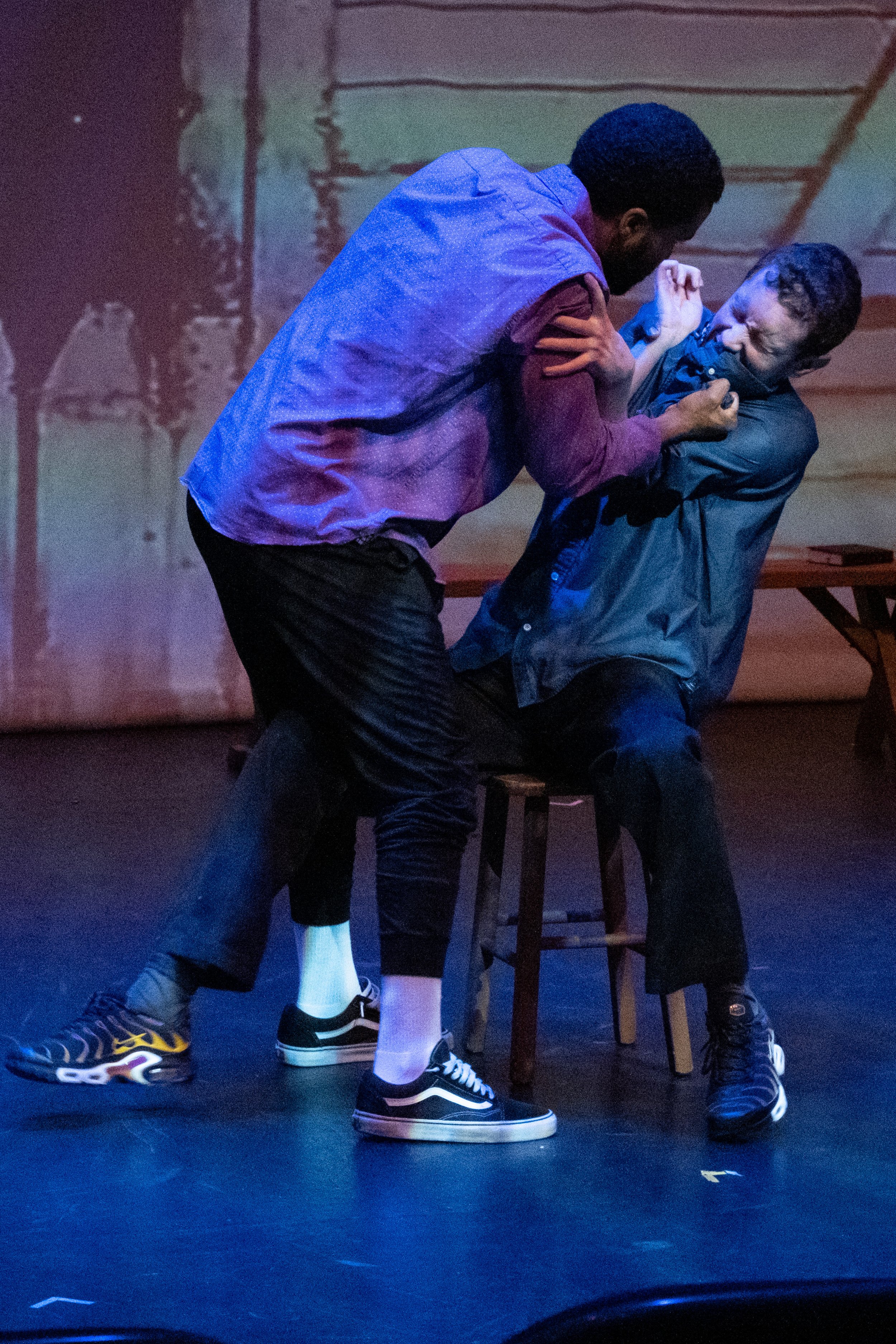
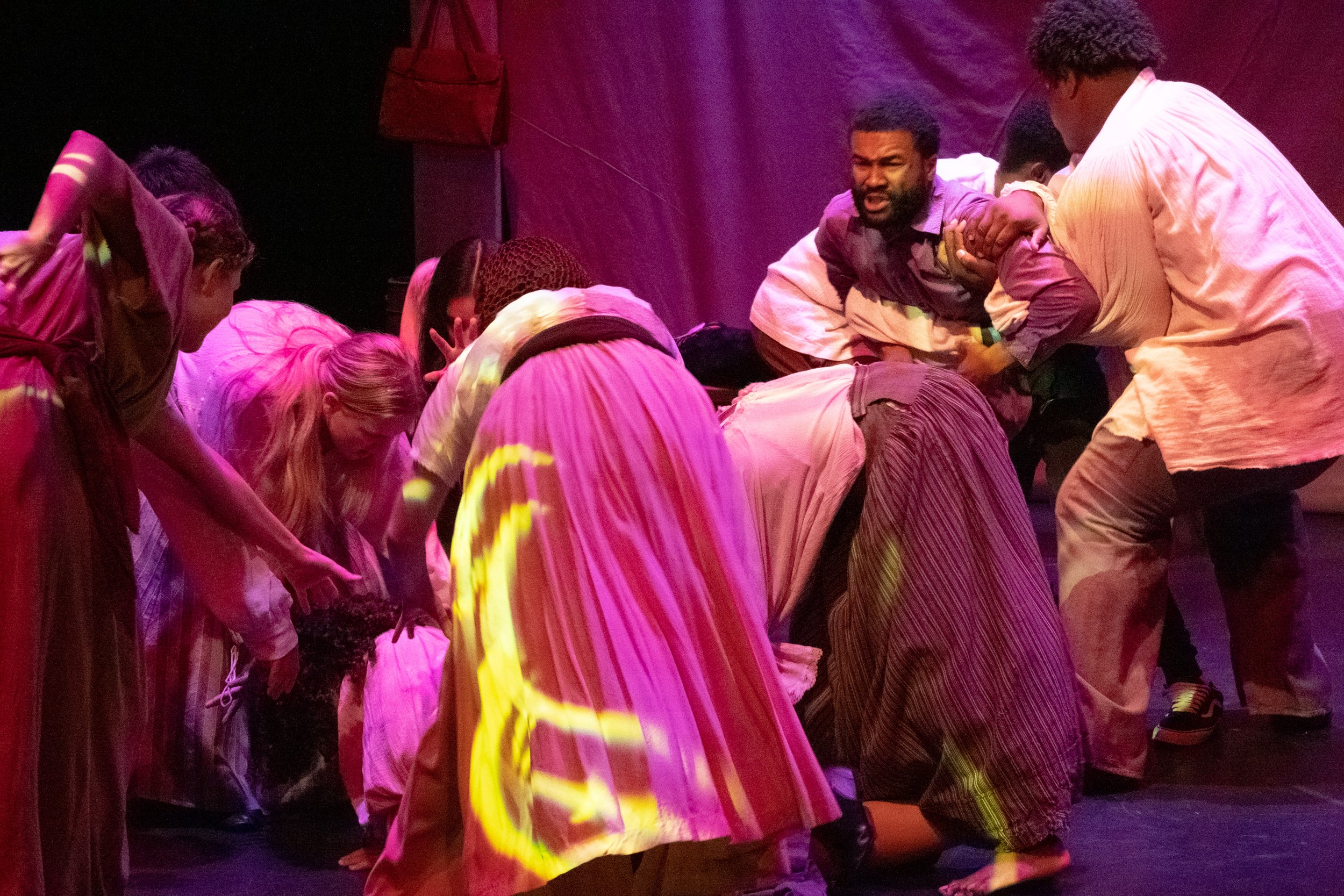
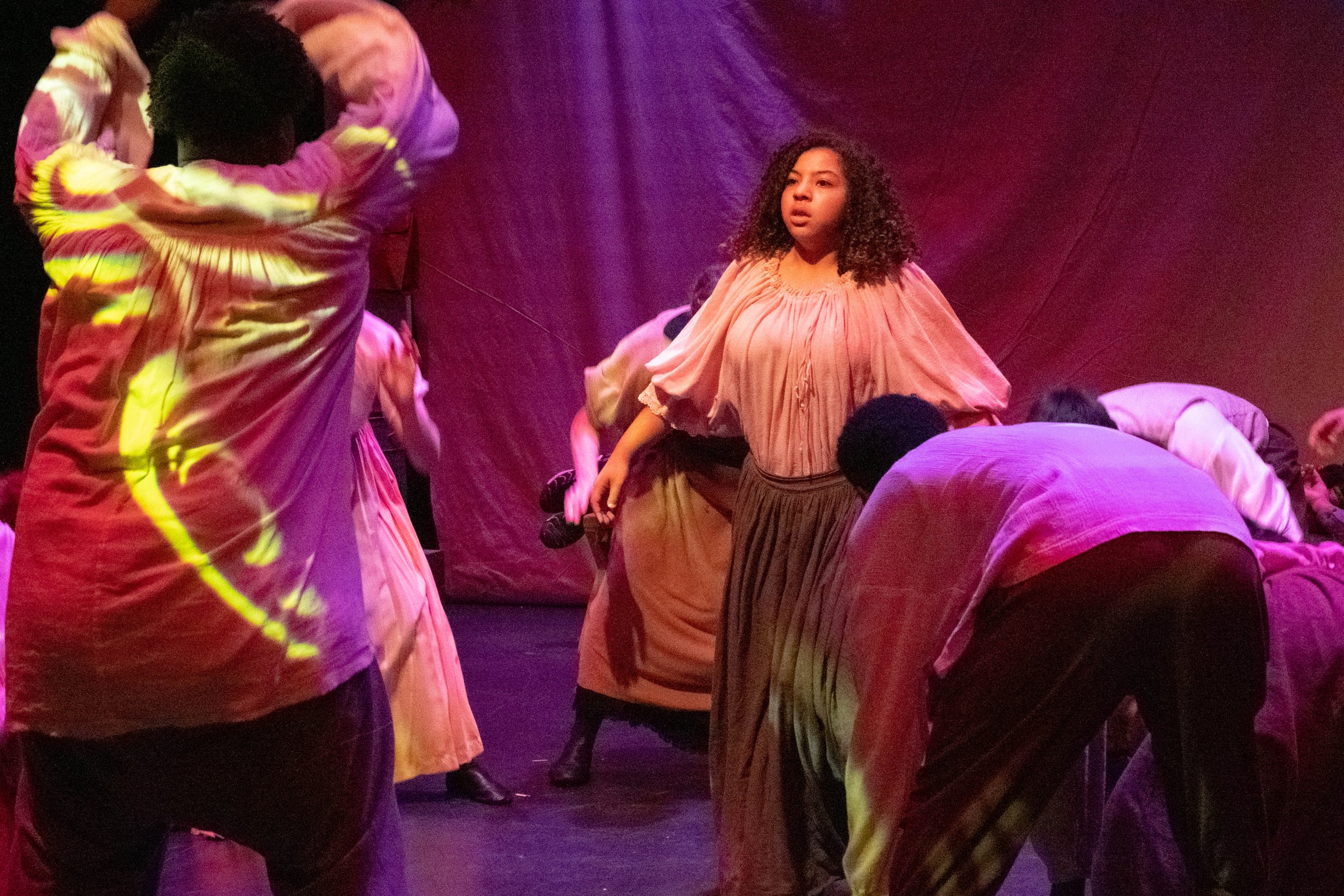
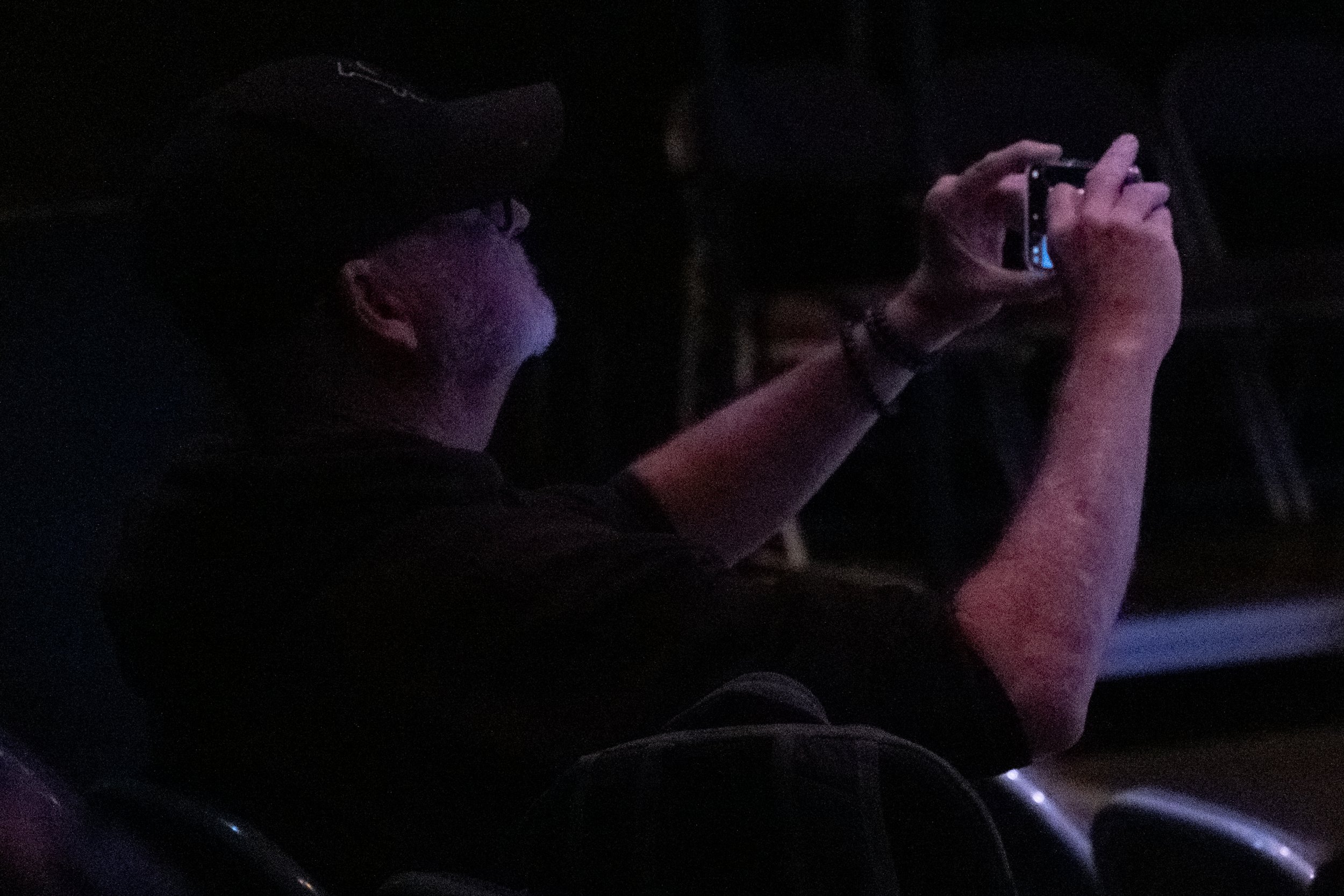
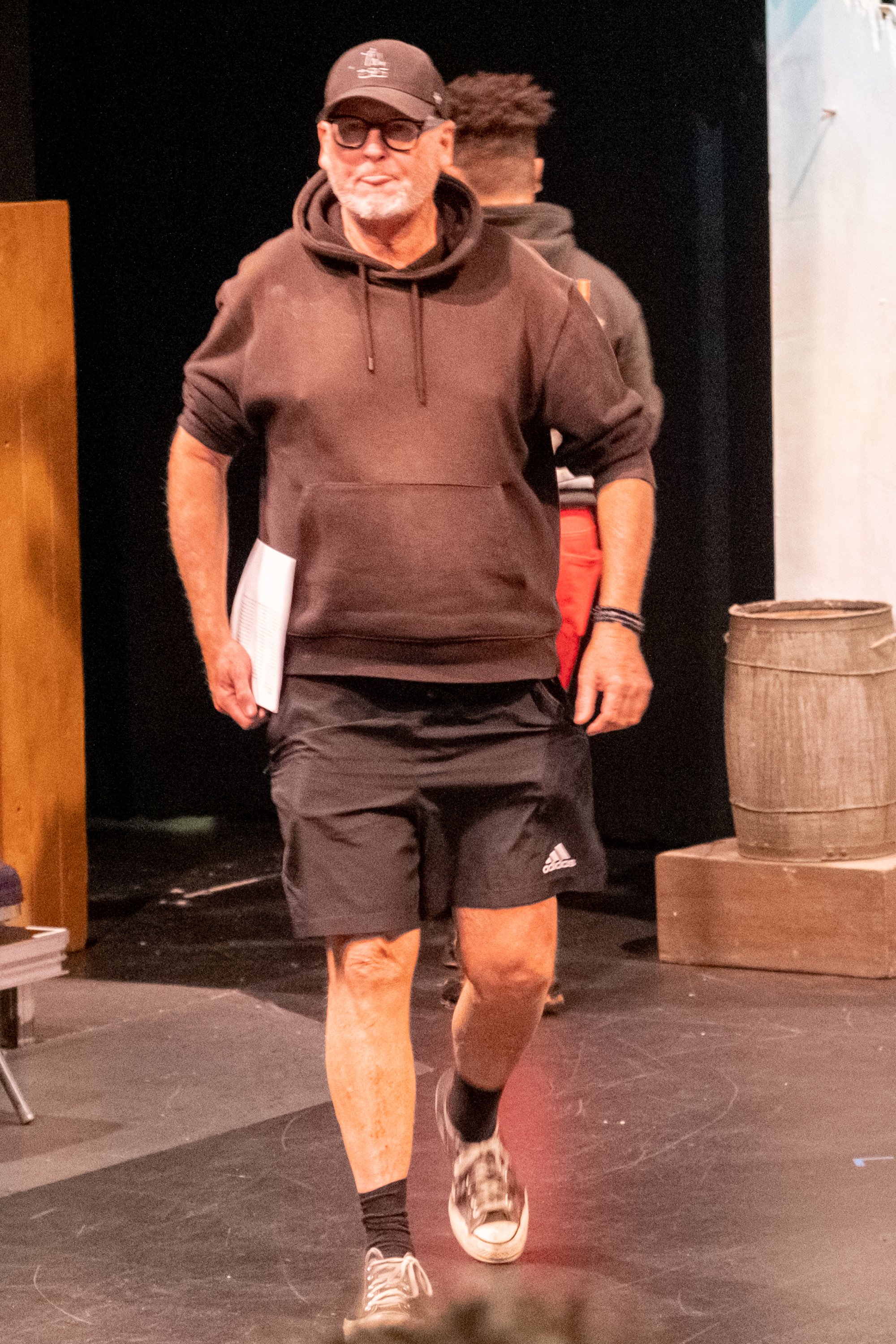
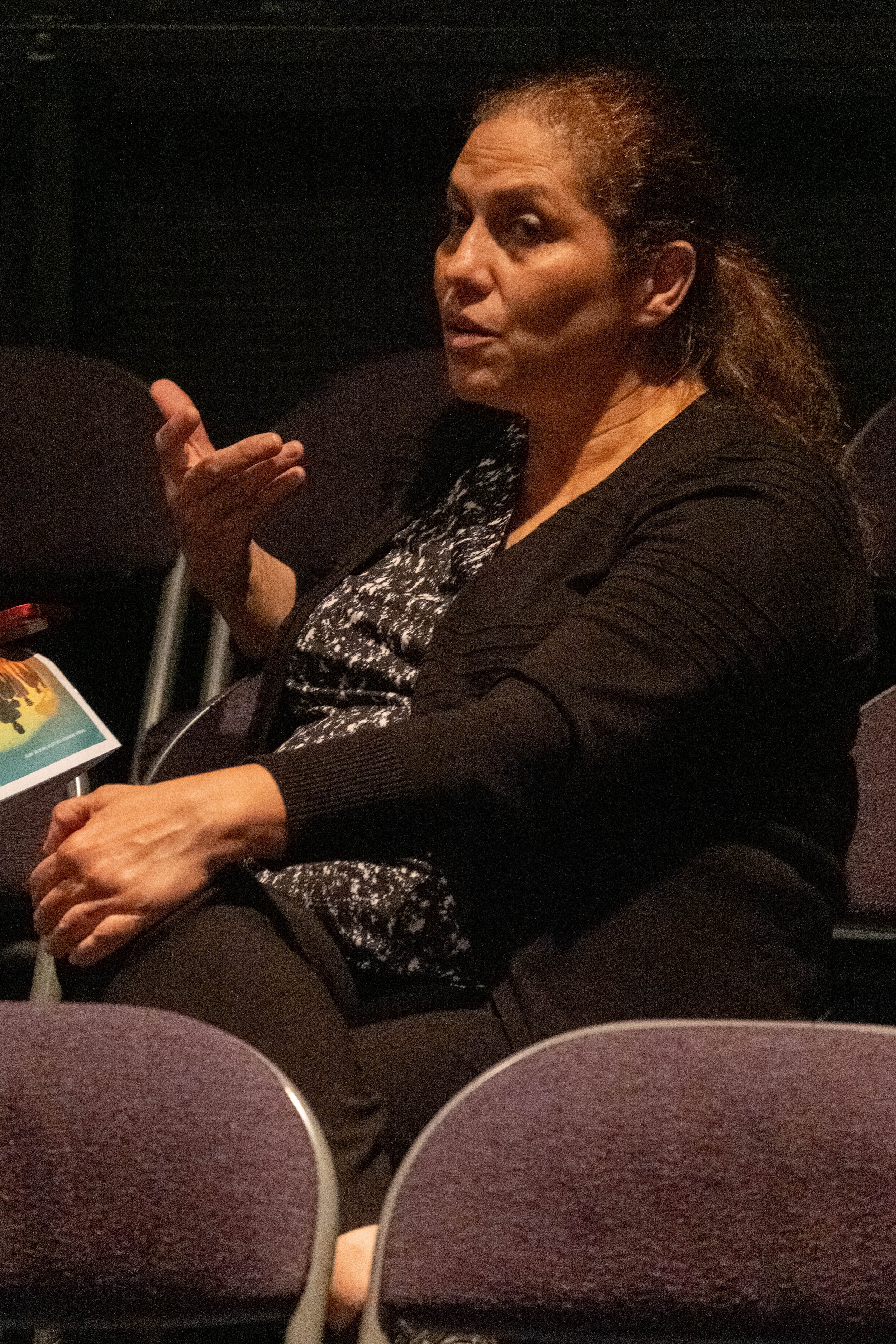
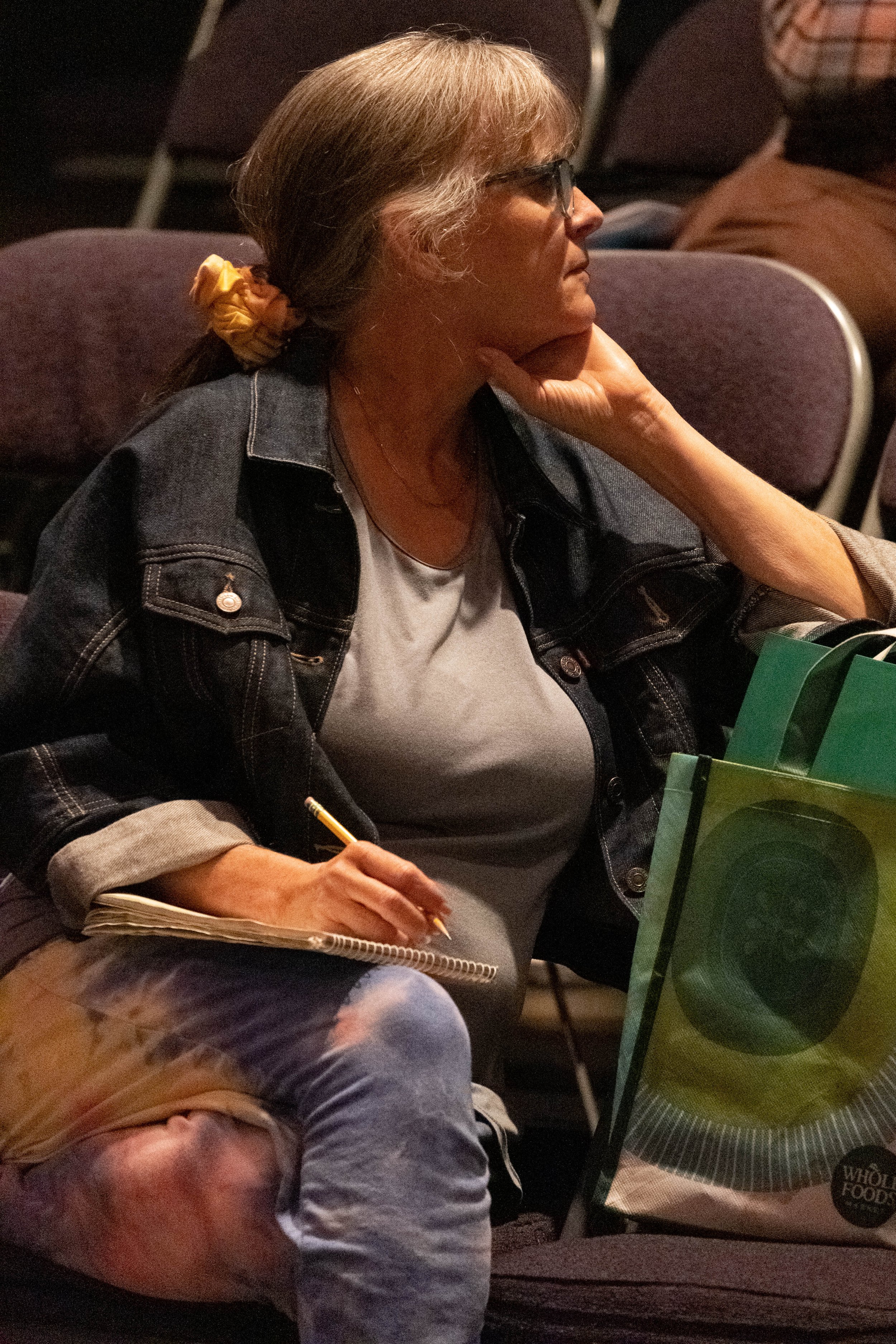
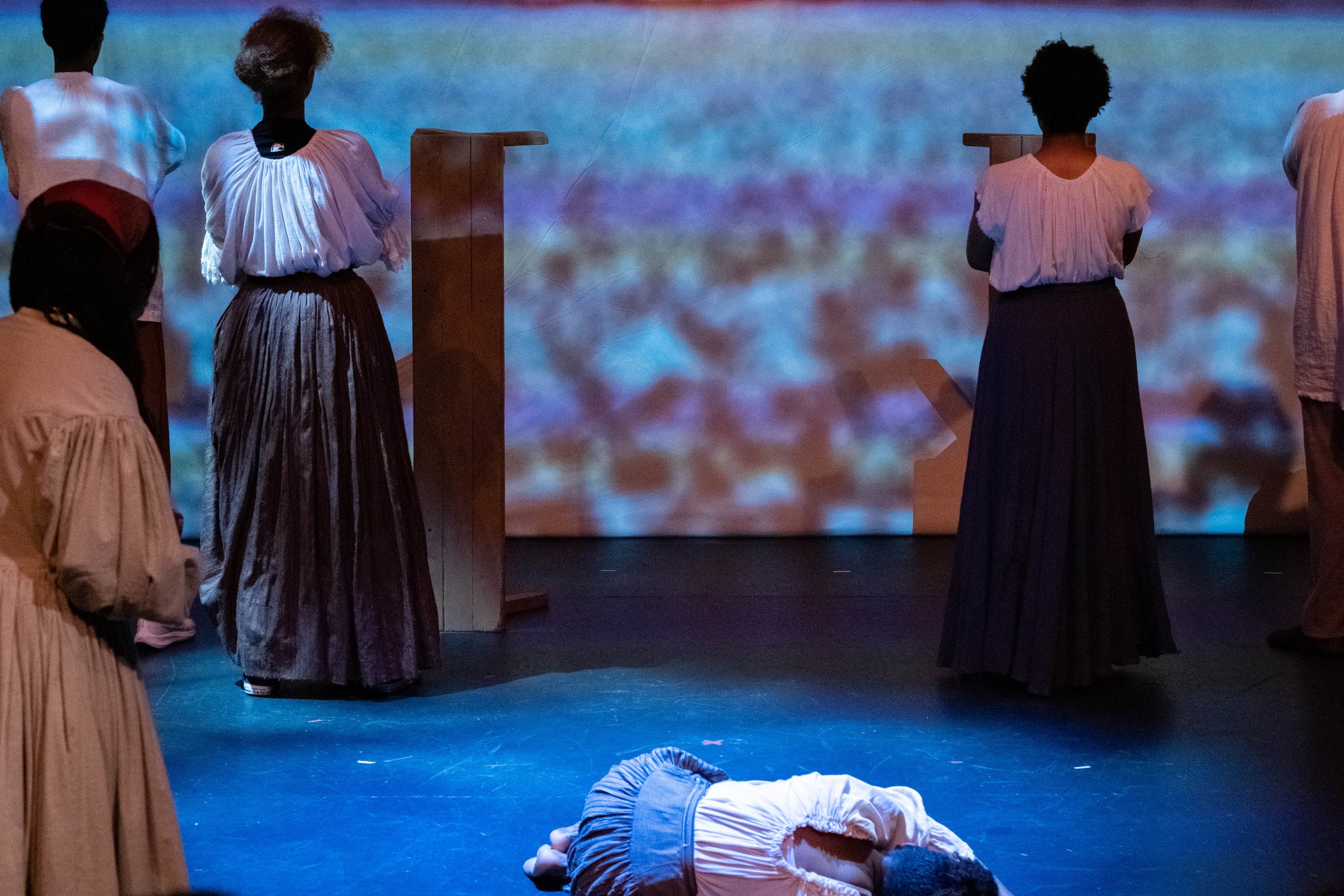
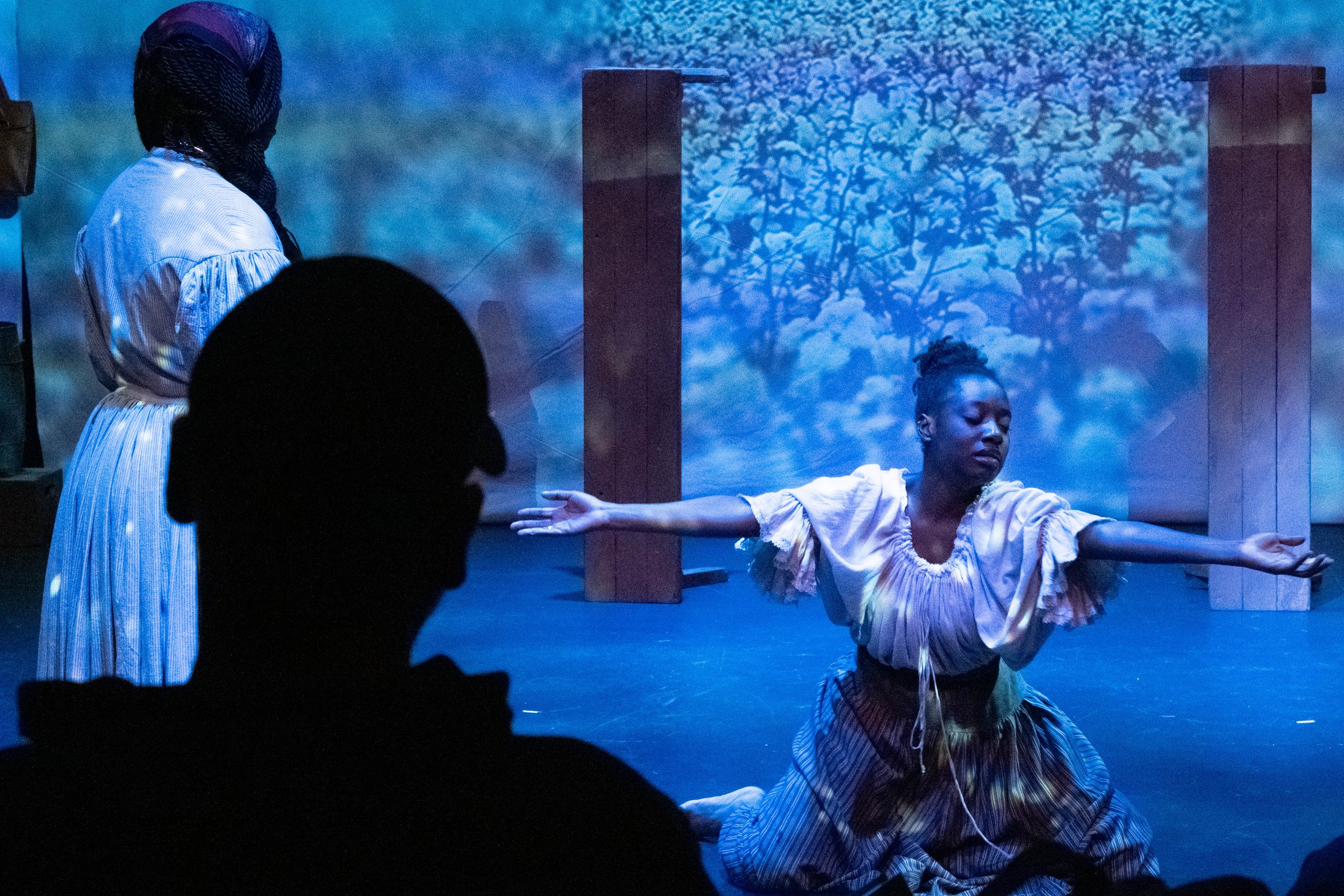
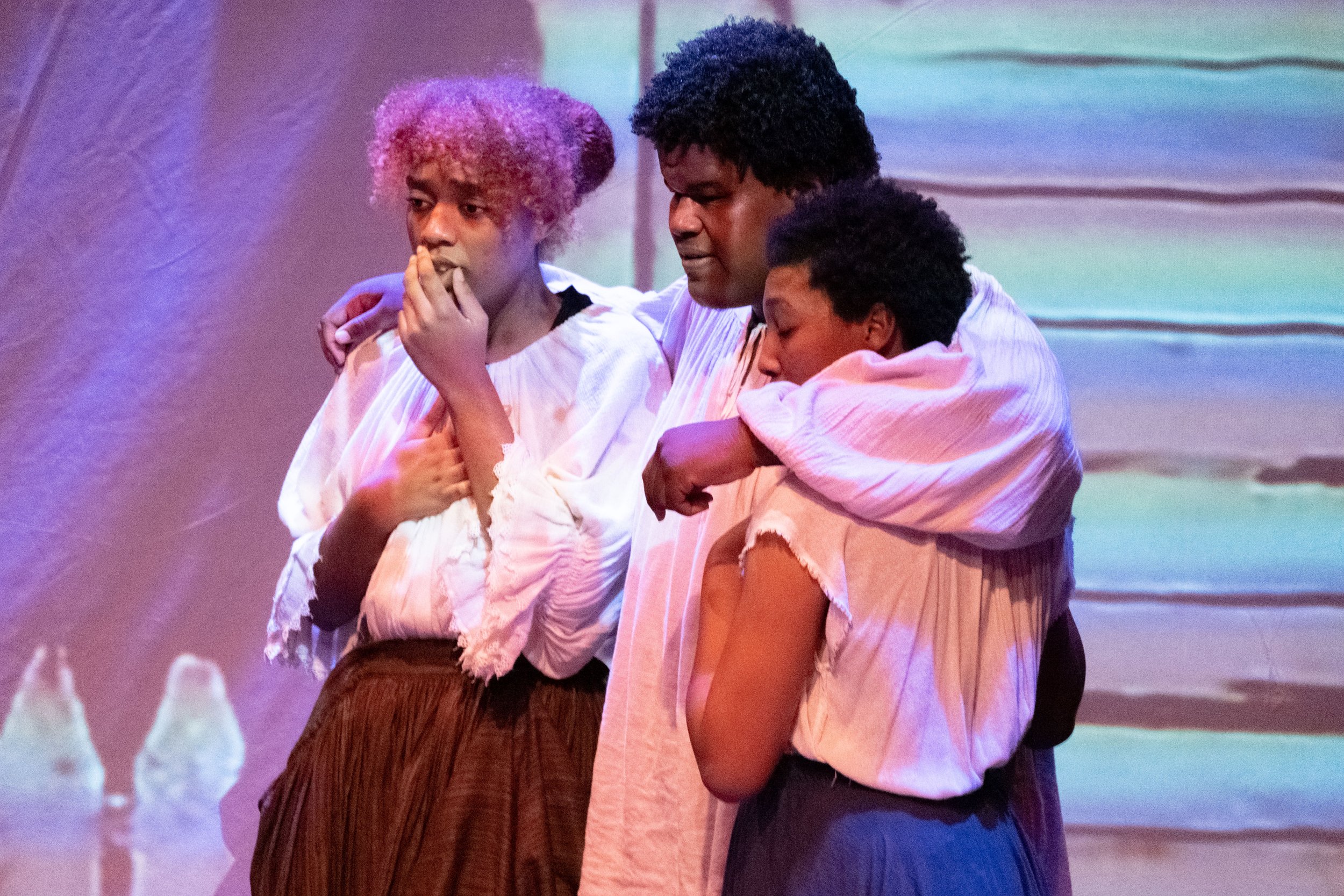
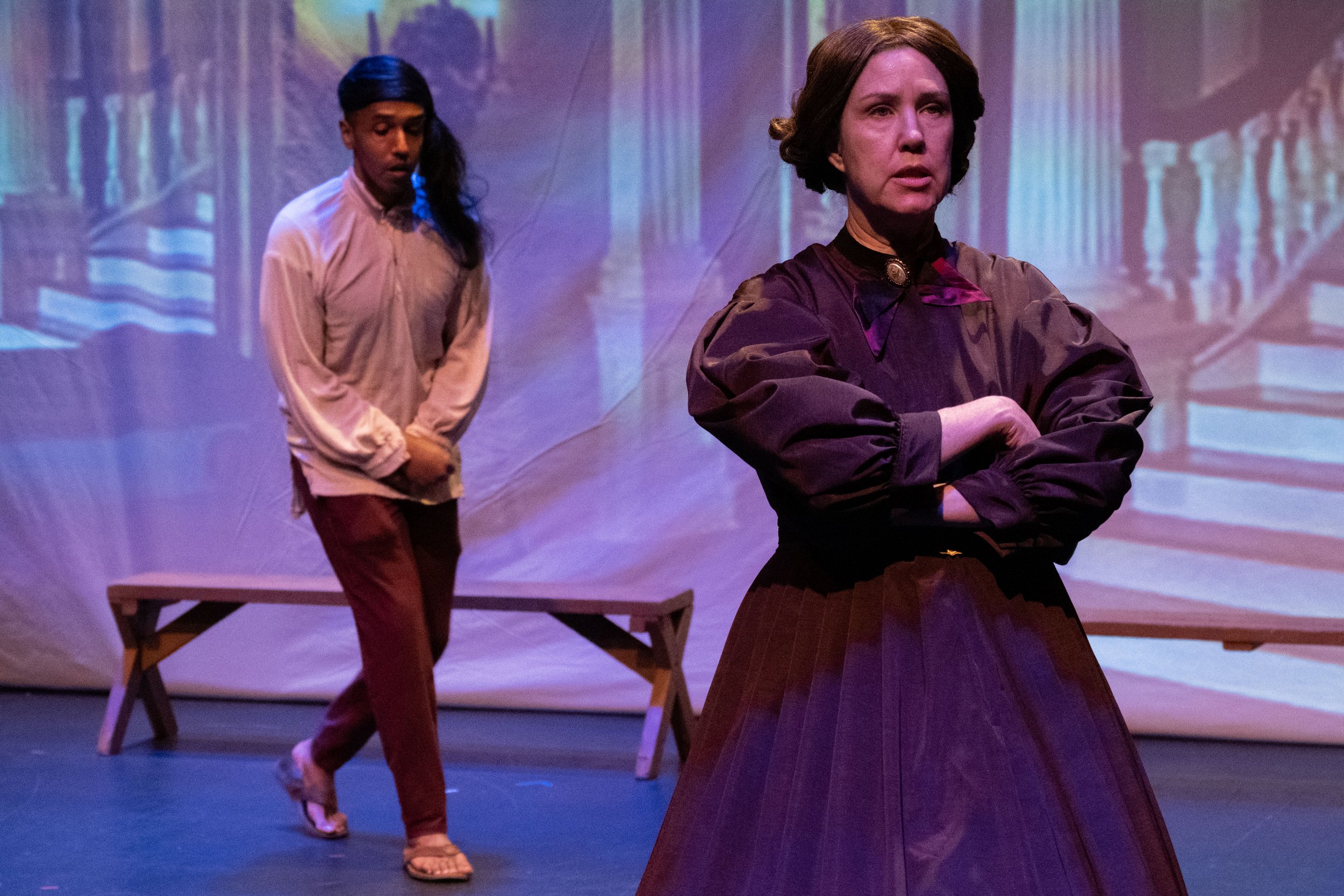
In preparation for the opening night of “By the River Rivanna,” cast members rehearse while 14 SMC organizations plan to protest.
UPDATE on Friday, October 20, at 9:34 a.m.: “By The River Rivanna” has officially been canceled.
With one day left until the opening night of the “By the River Rivanna” theater production, Santa Monica College’s (SMC) President Kathryn Jeffery has decided the play’s premiere will move forward as scheduled in spite of advocacy from several faculty members for its cancellation. Protests are expected to take place Friday at 6:30 p.m. in front of the Theater Arts Studio Stage on the college’s main campus.
“By the River Ravanna” was written by former SMC Public Information Officer and current playwright-in-residence G. Bruce Smith and is directed by SMC Theatre Director and faculty member Perviz Sawoski. The idea for the play, which tells a story set in both modern times and the 19th century about a romantic relationship between a slave and his master, came to Sawoski while visiting Magnolia Plantation in Charleston, South Carolina.
Opposition to the performance began last week after members of the Pan-African Alliance and Black Collegians program attended a rehearsal and found the show “deeply distressing,” according to the president of the Pan-African Alliance, Dr. Jermaine Junius.
Discussions about the play’s premiere continued throughout the week, culminating in Thursday’s meeting among SMC senior staff and legal counsel. Their decision to allow for the play's debut at SMC was based on matters of freedom of speech and academic freedom.
“I recognize that it’s a matter of academic freedom, but it's academic freedom at the expense of our black community,” said English Department faculty member Elisa Meyer. “When the system reinforces that kind of oppression, the people being hurt have no choice but to protest.”
The protests set to happen are being organized by the Pan-African Alliance with the support of 13 other SMC employee-based organizations. SMC Police Department Chief Johnnie Adams has been preparing the space outside the theater, designating free speech zones and press areas as well as coordinating plans in case of unplanned disruptions. “Ultimately, everybody wants to get their message out, and it’s my job to ensure that they do that safely… so hopefully, tomorrow will be a very smooth demonstration of their right to assemble and have free speech,” he said.
The Pan-African Alliance stated in a release announcing the protests that the play “embraces a romantic version of the terrible and tragic legacy of slavery, sexual abuse, and exploitation in our country.” Latino Center and Adelante program leader Maria Martinez shared the statement encouraging “all to join our Black brothers and sisters at the protest.” SMC’s Student Equity Center also shared the release, adding that “it’s crucial for all to understand the responsibility to freedom of speech and preventing harm,” and that while the organization promotes academic freedom and freedom of speech as “fundamental values,” they also recognize the potential for speech to cause harm, particularly as it relates to “racially-minoritized communities.”
In an email sent to faculty Thursday afternoon, Sawoski said “the play is not meant to be discriminatory against any group of persons” and that there has been “hysteria and misinformation” about it. She said that pulling the public performance would be “akin to censorship” and added that the script has been updated several times up until Wednesday and that it no longer includes the “n-word” as it originally did. After Tuesday’s technical rehearsal, she commented that “people are putting more thoughts on it than we intended” and “filling in blanks with whatever they think is egregious.”
Expanding on the production’s leadership stance on censorship, Smith said that he has been in touch with the American Civil Liberties Union and hopes that they “could make a statement or reach out to the administration” to discuss matters related to the U.S. Constitution's first amendment. After hearing word of the administration’s conclusion, he said that despite what he called harassment and bullying, he and Sawoski are very happy that the show will go on.
Dialect coach and SMC adjunct instructor Crystal Robbins said via Sawoski’s email that she has an issue with the production being called a “slavery play” and that she believes “the central theme is about power in many forms of relationships.” Robbins, a white-presenting person, was hired to instruct the actors on Yoruban dialects and “slave speak,” among others.
While the community anticipated the administration’s final verdict, faculty and students met across campus to discuss the script, its historical accuracy, and reflection on the institution’s values.
History and Ethnic Studies department faculty discussed the script on Wednesday afternoon. “This play insults every aspect of my identity as a queer person, as a black person and someone who is a practitioner of Ifá, which is the religious tradition that is being spoken about,” said history professor Justice Hamilton. On the play’s portrayal of the religion and Yoruban culture, history professor Trisden Shaw explained that it is “historically inaccurate” because enslaved people were deliberately and successfully separated from their traditions by the 1850s. “We can't, in an academically honest way, publish a play like this,” Shaw said.
Cecilia Jeong, president of the SMC’s Associated Students organization, shared a statement on Thursday acknowledging the importance of academic freedom but adding that “the play perpetuates problematic themes and discourse” including “centering of white perspectives and voices in telling a story about Black experiences” and “romanticizing sexual assault,” among other issues.
The cast members of the student production have continued to rehearse, despite being confronted with opposing views from faculty. Many have expressed they understand both perspectives while others focused on the possibility of the play’s cancellation.
Cast member Ava Kitt shared in a letter to dean and vice president of Academic Affairs James Beardsley that she is “heartbroken that students concerned with their own self-righteousness who couldn't even take it upon themselves to see the play are shutting it down and in doing so, squashing riveting and inspiring work from some very talented and profound Black student actors".
Tia Jiji, playing Charlotte, said that she was hesitant to be part of the play out of respect for her parents who are from Africa. “I told [my mom] what the play is about, and she expressed to me that ‘as long as it’s not offensive, I condone this.’” Regarding the controversy surrounding the play, she said sees both sides.
Lead actor, Earl Williams, expressed conflict over the topics expressed in the play. He said that specifically between the African American cast members they leave rehearsal and discuss “the challenges and anxiety and just everything that we don't agree with. We talk about that. So it's heavy.” He added “I'm not one to sign up for something and then stop or quit. So I tried to find elements in the show that I can grasp onto to be able to, I guess, get me through the process.”
Friday’s premiere and the coinciding protest will set the stage for further discussions.



